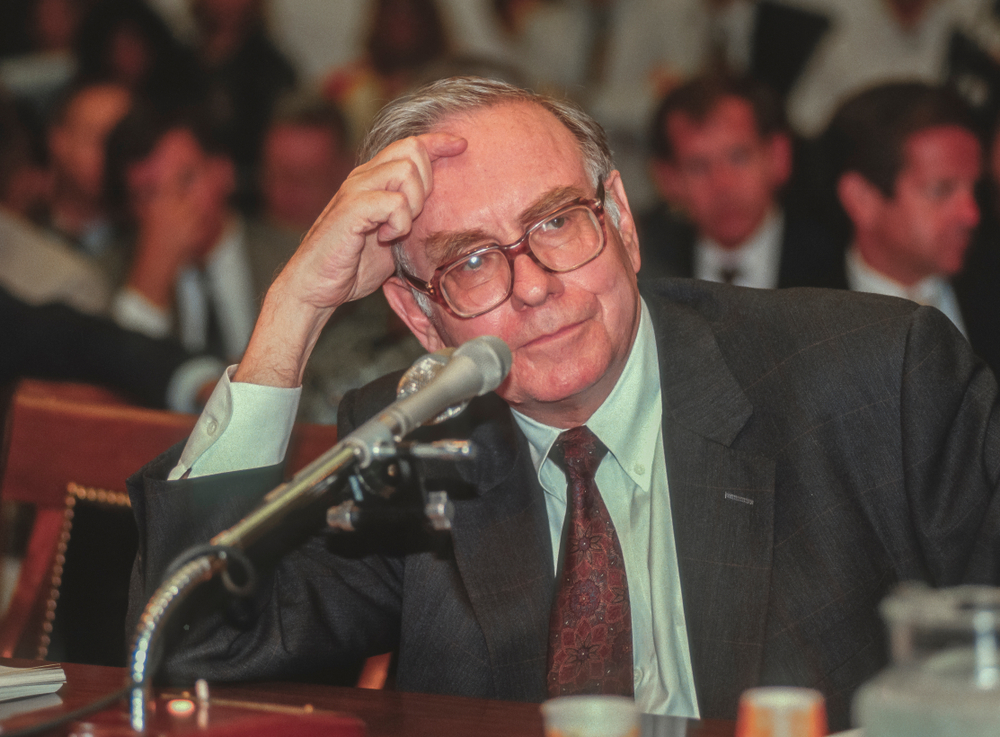Business
Buffett Recommending S&P Index Fund A Mistake, Says Berkshire Shareholder

In an article earlier this week, we posed a simple question: has Warren Buffett lost his touch?
Mark Hulbert, of the Hulbert Financial Digest, says skeptics are being “unfair” on Buffet. Hulbert adds that anyone suggesting he’s lost his touch should cool their heels. He says Buffett hasn’t lost money in the last 10 years. He also mentions that nobody beats the market all the time.
Others, like Howard Gold, a columnist at Marketwatch, points out that Buffett has been “profoundly underperforming” against the S&P 500 and most of his recent deals have been duds.
Buffet Gives Advice
But what irks one investor, in particular, was Buffett’s advice that the average investor should just buy an S&P index fund.
Buffett’s comment came during the Berkshire Hathaway conference call, when he stated “In my view, for most people, the best thing to do is to own the S&P 500 index fund.”
That may be practical advice for the vast majority of Americans. However, Tony Scherrer, a CFA at Smead Capital Management, says that Buffett’s comment completely goes against his own advice.
Scherrer believes that by recommending an S&P index fund, Buffett is telling investors to buy the exact type of companies that he himself has spent his career avoiding.
Specifically, a quote from the 2007 Berkshire Hathaway shareholder letter, where Buffett says:
“The worst sort of business is one that grows rapidly, requires significant capital to engender the growth, and then earns little or no money.”
Scherrer takes each part of the statement and points out where Buffett contradicts or simply ignores his own advice. He starts with:
“The worst sort of business is one that grows rapidly…”
The S&P 500 has 21% of its weighting in just five stocks: Microsoft, Apple, Amazon, Facebook and Alphabet. Scherrer points to research by David Kostin at Goldman Sachs that shows these top five names have an expectation of revenue growth of 14% over the next two years, and trade at 28x the forward two-year earnings average. The other 495 stocks in the index are expected to grow revenue much slower, at 4% over the next two years, but also trade at a much lower 14x the forward two-year earnings average. In other words, buying the S&P index fund means paying twice as much (28x vs. 14x) for a handful of stocks that are growing rapidly.
“…requires significant capital to engender the growth…”
Netflix, Amazon and Facebook are among the heavily weighted stocks in the index, and Scherrer says they are all burning through significant amounts of money to keep growing.
“Netflix’s cost for its content has mushroomed from $4.5bn five years ago to an expected $15bn in 2020 and will have to continue to expand to operate its business. Amazon… recently announced a $4bn increase in costs associated with safety of its workers and protection in its warehouses on the heels of its deficiencies… Facebook’s recent quarter included a 34% increase in expenses year-over-year to a whopping $46.7bn, as its cost to acquire new customers and increased regulatory expenses spiked.”
“…then earns little or no money”
Looking at the numbers, Scherrer says ”Netflix burned $3.1bn in free cash flow last year and must persistently ramp that up to attract and retain subscribers. Amazon’s flywheel generated an eye watering $280bn revenue number in 2019, but operating profits for everything outside its cloud business came in at a measly $5.3bn. You currently pay 68x forward price-to-earnings for Netflix, 126x for Amazon, and 28x for Facebook.”
Buffett of the Past v.s. Buffett of the Present
Scherrer believes that if 2007 Warren Buffett met today’s Warren Buffett, there’s no way he would allow him to buy an S&P index fund that is highly concentrated into a handful of stocks that are high growth, capital incinerators that earn very little money.
But 2007 Warren Buffett would probably be most appalled that 2020 Warren Buffett would be selling airlines stocks. That means at some point, Warren Buffett thought investing in airline stocks was a good idea.
In the same 2007 shareholder letter, Buffett outlined what “The Great, the Good and the Gruesome” businesses look like. Buffett described a “gruesome” business by using airlines as an example.
Incredibly, he described them as “The worst sort of business is one that grows rapidly, requires significant capital to engender the growth, and then earns little or no money.”
Up Next:















